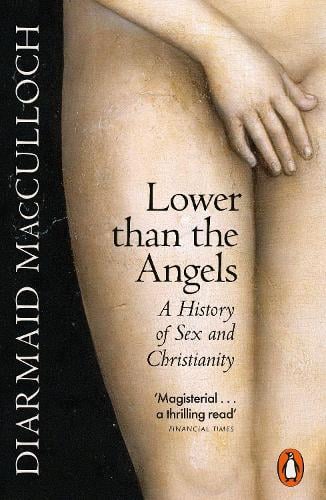Diarmaid MacCulloch's 'Lower than the Angels: A History of Sex and Christianity' explores the complex and often contradictory history of Christianity's relationship with sex and the body. The book reveals that Christianity has never had a unified theology of sex, and this internal conflict has shaped its doctrines over centuries. MacCulloch's deep research and accessible writing make the book both informative and engaging, offering a nuanced perspective on a contentious topic.
Diarmaid MacCulloch's 'Lower than the Angels: A History of Sex and Christianity' is a timely and insightful exploration of the intricate and often contradictory history of Christianity's relationship with sex and the body. The book challenges the notion that Christianity has ever had a coherent or stable theology of sex, revealing instead a faith that has continually grappled with these issues. MacCulloch begins by examining the cultural traditions of Judaism and Greco-Roman culture that influenced early Christian thought, highlighting the tensions and contradictions that arose as the faith tried to reconcile these diverse influences. The book delves into key debates, such as celibacy versus marriage, and how these issues have evolved over time, particularly with the Reformation and the changing roles of women in the church. MacCulloch's extensive research is presented in an accessible and engaging manner, leavened with wit and humor. While the book primarily focuses on Western Christianity, it also touches on Orthodoxy and Christianity in Africa, adding layers of complexity to the understanding of how these beliefs have shaped different contexts. For those returning to the Christian faith or seeking a deeper understanding of its history, this book serves as a powerful reminder that the doctrines surrounding sex and marriage are far from settled and continue to evolve.
Quick quotes
The faith has always been at war with itself in its attempt to grapple with the reality of the human body and human sexuality, never quite able to paper over or resolve the contradictions built into its very conception and its self-identity.
This was a motivating concern for no less a figure than Paul himself, who finally had to admit that, yes, he supposed it was better to marry than to burn (with lust).
What’s remarkable about 'Lower than the Angels' is just how deeply-researched yet accessible it is.
